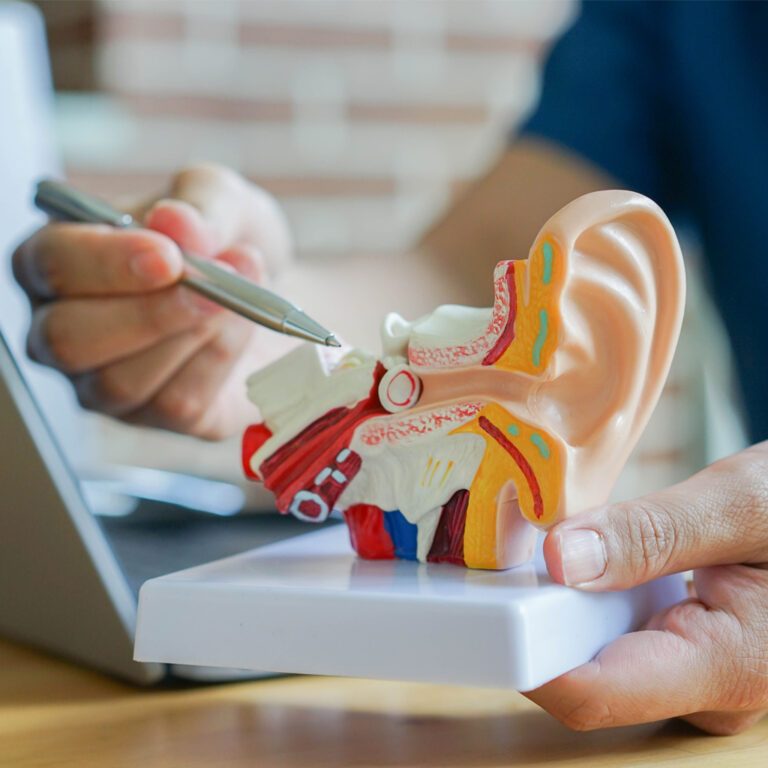What Causes Hearing Loss?
Aging
One of the most common types of hearing impairments is gradual, age-related hearing loss that typically affects both ears.
Noise Exposure
Prolonged exposure to loud noises, such as loud music, machinery, or firearms, can damage the delicate structures of the inner ear.
Genetics
Another cause of hearing loss is inherited issues. Genetic factors can contribute to congenital or developed hearing impairments.
Ear Infections
Chronic or severe ear infections, such as otitis media, can cause temporary or permanent hearing issues, especially with untreated hearing loss.
Medications
Certain medications, such as antibiotics, chemotherapy drugs, and high doses of aspirin, can potentially cause hearing loss.
Trauma or Injury
Head injuries or severe trauma to the head or ear can result in temporary or permanent hearing impairments, depending on the extent of the damage.
¹Fitting fee may apply. ²Deductible required. ³Immediate family members include father, mother, husband, wife, son, daughter, brother, sister, grandfather, grandmother, father-in-law, mother-in-law, sister-in-law, brother-in-law, and domestic partner and civil unions recognized under State law.






